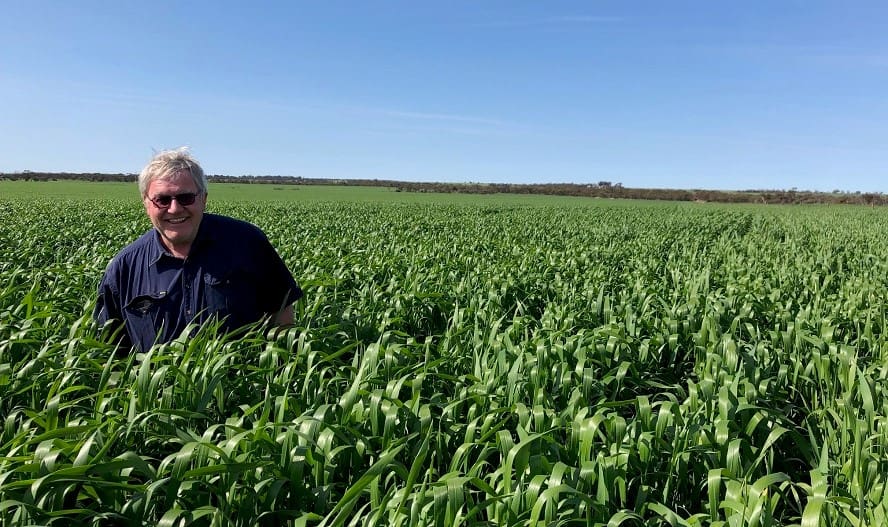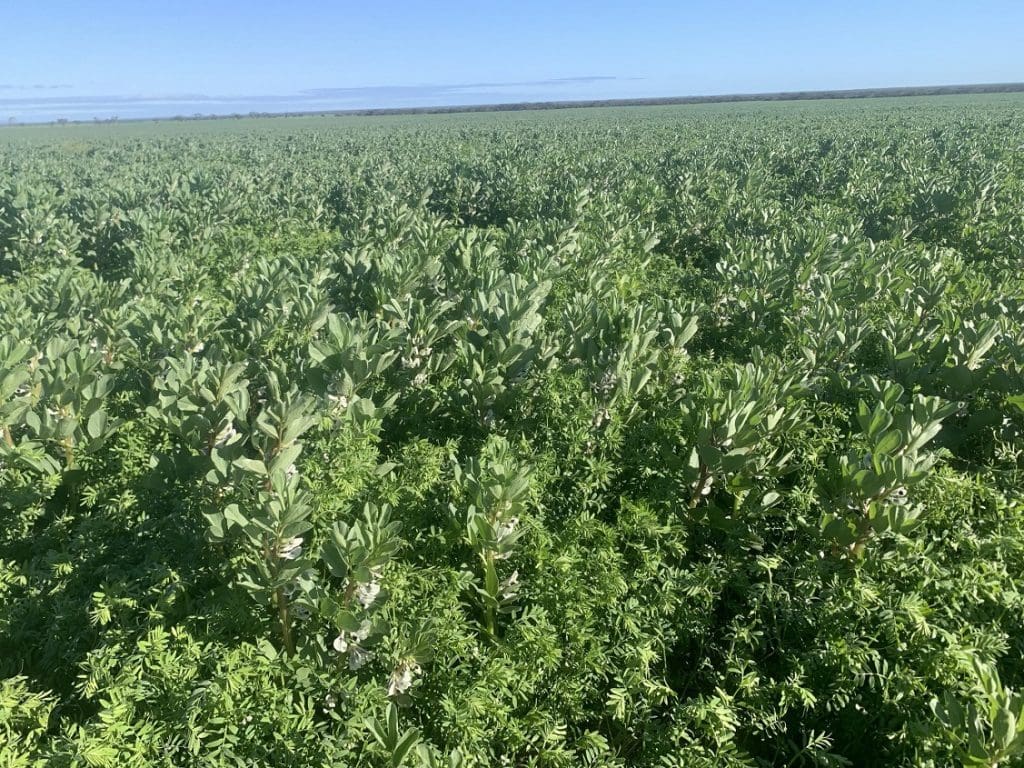
Eyre Peninsula farmer Andrew Polkinghorne in a crop of Rockstar wheat on his family’s Kingara Farm at Lock. In another paddock the Polkinghornes have sown an intercrop of faba beans and lentils for the first time.
A FARMING family on the Eyre Peninsula in South Australia is trying their hand at intercropping for the first time in a bid to maximise production in a paddock with soil and harvesting issues.
Andrew and Jenny Polkinghorne, and their son Tim and his partner Ellen, have sown a combined crop of faba beans and lentils into a section of one of their paddocks as an ‘experiment’ to see if it is a viable management strategy for some of the rocky cropping paddocks on Kingara Farms at Lock.
“It is a ‘suck it and see’ job. The reason we are doing it is because we have a particular bit of soil that is quite stony, but we need to get a pulse in there,” Mr Polkinghorne said.
“We were keen to grow lentils because they suit our soil type and climate, but they were going to be hard to harvest (on the stony paddock). So, we put some faba beans with them to give them something to lift up on.
“Even though we rolled the paddock with heavy flat rollers, there is still a lot of limestone in the paddock. Intercropping will hopefully give the crop a couple of inches more to stay above the rocks.
“The other part of the rationale is it might keep the canopy of the lentils a bit more open and therefore a little bit less prone to fungal disease, although that is not an issue at the moment.”
Mr Polkinghorne said another reason for having two crops with slightly different growing requirements was to maximise the performance across different soil types.
“There is a range of soil types within the paddock, so part of the theory is that with different species suited to different soil types, rather than just have one species across the paddock and not do very well on some soil types and quite well on others the two crops will balance each other out a bit,” he said.
“The other thing that has happened is that the height of the flowers on the beans is significantly higher because they are flowering above the lentil canopy, not down in it. So, the pod height on the beans will also be higher.”
The combined crop of faba beans and lentils has been sown into a 113-hectare area of a 250ha paddock. The remainder of the paddock has been sown solely to lentils.
“We just put beans in one box and lentils in the other and used a prescription map. The prescription map adjusted the seeder as required. When it got to the bean area it switched the beans on and changed the rate on the lentils. It was all just sown in the one go as one piece.”

The combined crop of faba beans and lentils has been sown into a 113-hectare area of a 250ha paddock on the Polkinghorne family’s Kingara Farms at Lock.
Mr Polkinghorne said compared to growing a single crop, one of the extra operations needed with intercropping was to separate the different grains after harvest.
He hopes there will be enough difference in seed size to make them relatively easy to separate.
If the ‘experiment’ proves successful, Mr Polkinghorne plans to use intercropping in the future on other sections of the farm where the soil types and stoniness are issues.
He said one of the things he would do differently next time was select varieties that made broadleaf weed control easier.
“We used the variety Samera for the faba beans and Hurricane for the lentils this time. The Hurricane has the imidazolinone-resistant gene but the Samera doesn’t which means we are limited in terms of our broadleaf weed control,” he said.
“But if we changed to, say, Bendoc faba beans, which have the ‘imi’ gene then we have broadleaf herbicide options.”
Grain Central: Get our free cropping news straight to your inbox – Click here



HAVE YOUR SAY